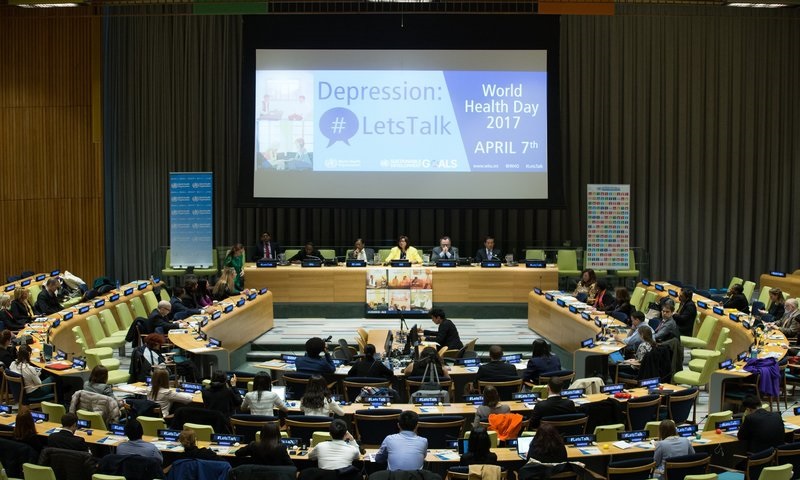
Three hundred million people suffer from depression at present, making it the single largest contributor to disease and disability. When untreated and at its worst, depression causes people to commit suicide and young people are particularity vulnerable. According to the World Health Organization (WHO), the second leading cause of death among 15-29 year olds is suicide. Nevertheless, depression remains a stigmatized issue that people struggle to talk about.
On April 7 the WHO held their annual World Health Day event at the United Nations Secretariat. This year they highlighted depression and with an aim of breaking stigma by paying attention to the growing problems it causes to people’s general health. Naming the campaign, #Letstalk, the WHO is attacking stigma to create a world where people can talk about what troubles them.
Dr. Margaret Chan, a virtual panelist, spoke about how talking can remove the dark cloud of depression. The Permanent Representative of Canada, Marc-Andre Blanchard, gave a powerful personal address sharing how depression had touched his own family. In Canada 1 in 3 people will experience mental health symptoms in their life time, but as Blanchard stressed, it affects everyone. Canada has been taking steps in the right direction making investments to provide better depression treatment, spending $3 billion on mental health and homecare since 2015.
Depression affects everyone at all social levels, but the most vulnerable are affected disproportionally. A panelist from UNHCR revealed that depression is a prominent issue for displaced people with 1 in 5 displaced persons experiencing depression. Home communities often serve as the foundation for treating mental health and when people are removed they are more likely to experience depression and have more severe symptoms. As a result, UNHCR is implementing creative solutions such as providing safe spaces in refugee camps for women and children and training ground staff on how to recognise mild, moderate, and severe depression symptoms so they can more efficiently provide treatment.
Although this event described the deep hopelessness depression can cause people, WHO’s message on this World Health Day was one of hope. There are two facets to the #Letstalk campaign: firstly is the need to normalize talking about mental health and depression and eliminate the stigma, and secondly, allow people who suffer from depression to come forward and take their first steps towards treatment.
To read more about the event please click here.
SOURCE: UNDESA DSPD
 Welcome to the United Nations
Welcome to the United Nations